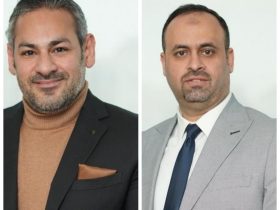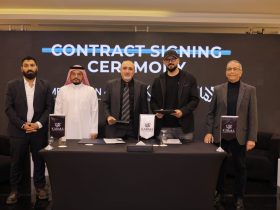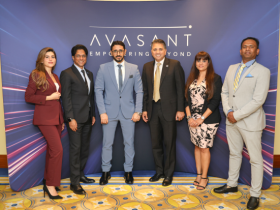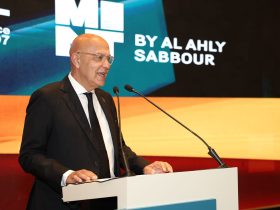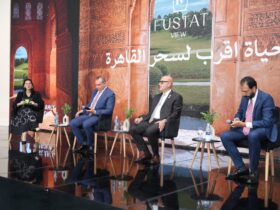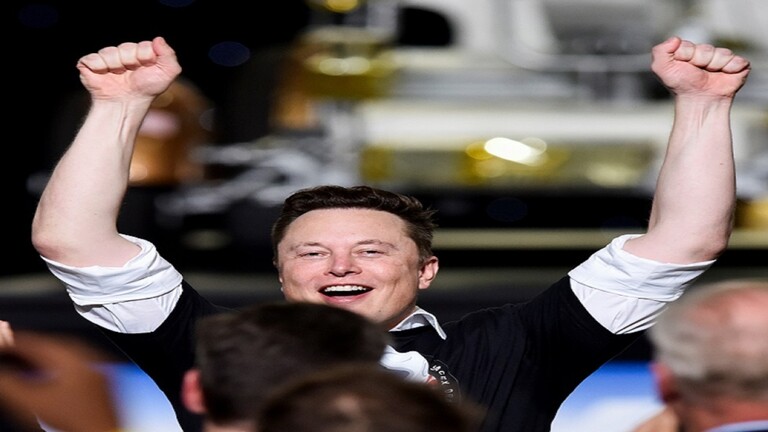Dubai – Masaader News
As directed by His Highness Sheikh Mohammed bin Rashid Al Maktoum, Vice-President and Prime Minister of the UAE, and Ruler of Dubai to start immediately in the construction of roads and transport projects associated with the hosting of Expo 2020 in Dubai, the Roads and Transport Authority has awarded two contracts of Phase I and 2 of Expo Roads Improvement Project. The project will ensure a smooth flow of traffic that serves Expo visitors and future projects in the area. These two phases include improving Jebel Ali-Lehbab Road at the intersection with Sheikh Mohammed bin Zayed Road. It also includes the construction of bridges on Sheikh Mohammed bin Zayed Road to serve the traffic from and to Expo yard. The total cost of these two phases of the project is in the range of AED1.36 billion.
“The Improvement of Roads Network for Expo is one of the biggest road projects currently undertaken by RTA to meet the needs of hosting Expo 2020 in Dubai. Due to the immense nature of the Project, it has been divided into six phases to ensure its timely delivery, well before the opening of Expo,” said Al Tayer.
“Phase 1 includes converting the existing R/A at the intersection of Sheikh Mohammed bin Zayed Road and Jebel Ali–Lehbab Road to a flyover enabling free traffic movement in all directions. Jebel Ali–Lehbab Road will be upgraded through the construction of two bridges of six lanes in each direction along with turns and direct ramps to ensure a smooth flow of traffic from Sheikh Mohammed bin Zayed Road to and from Abu Dhabi. Improvements would also ease the traffic from Jebel Ali–Lehbab Road in the direction of Sheikh Zayed Road, northward to Sheikh Mohammed bin Zayed Road in the direction of Dubai, and southward to Sheikh Mohammed bin Zayed Road in the direction of Abu Dhabi. Phase 1 also includes road works extending 27 km on Jebel Ali–Lehbab Road involving the widening of the Road from four to six lanes in each direction as well as constructing service roads in both directions and four bridges in some parts of the Road. Such improvements would ensure free traffic movement from and to Jebel Ali–Lehbab Road in the direction of Expo,” said Al Tayer.
“Phase 2 includes the construction of two flyovers on Sheikh Mohammed bin Zayed Road to ensure free entry & exit to the site of Expo in addition to roadworks extending 16 km. The first intersection (Expo Junction) encompasses the construction of two six-lane bridges to serve the traffic inbound from Dubai, Sharjah and other Emirates heading to the parking yard of Expo. Two 2-lane bridges would be constructed to serve the traffic from Abu Dhabi to Expo as well as a 2-lane bridge for traffic exiting Expo heading to Sheikh Mohammed bin Zayed Road in the direction of Abu Dhabi. The second intersection (Al Maktoum Airport Junction) encompasses the construction of a 3-lane bridge to serve the traffic inbound from Dubai, Sharjah and other Emirates heading to Expo in addition to a 2-lane bridge to serve vehicles exiting Expo heading to Abu Dhabi. It also involves the construction of surface roads to ease the turns from and to Abu Dhabi as well as service roads on both sides of Sheikh Mohammed bin Zayed Road,” explained Al Tayer.
“RTA has charted out a comprehensive plan to meet the needs of hosting Expo 2020 in Dubai and ensure safe and smooth mobility for visitors of Expo and associated events. Besides upgrading roads network, the Plan also includes the construction of Route 2020 involving the extension of the Dubai Metro Red Line 15 km from Nakheel Harbour and Tower Station to the site of Expo 2020. It also includes improving public transport routes and systems serving Expo such as the deployment of environment-friendly buses to commute visitors from key assembly points in Dubai, operating taxis to serve visitors, besides providing necessary parking spaces and streamlining the movement of public transit means. Last year, RTA had opened the Enterprise Command & Control Centre. It is considered the biggest and most sophisticated control centre worldwide in terms of smart technologies in use, ability to control and integrate various existing & future transit means, and the proper planning of mobility to cope with numerous transport challenges in Dubai,” concluded Al Tayer.




